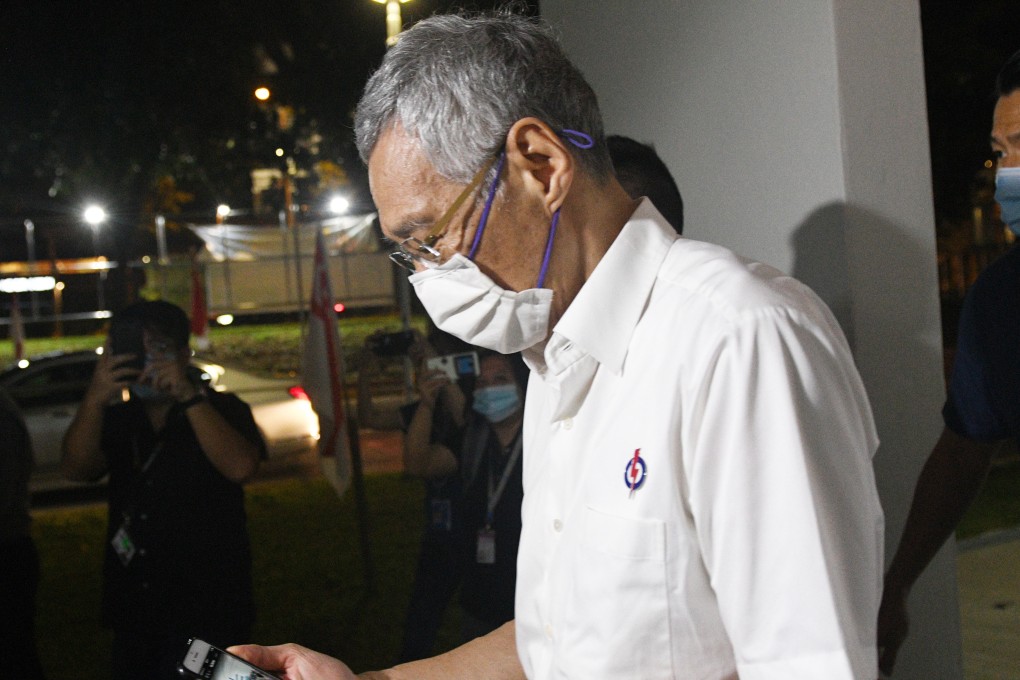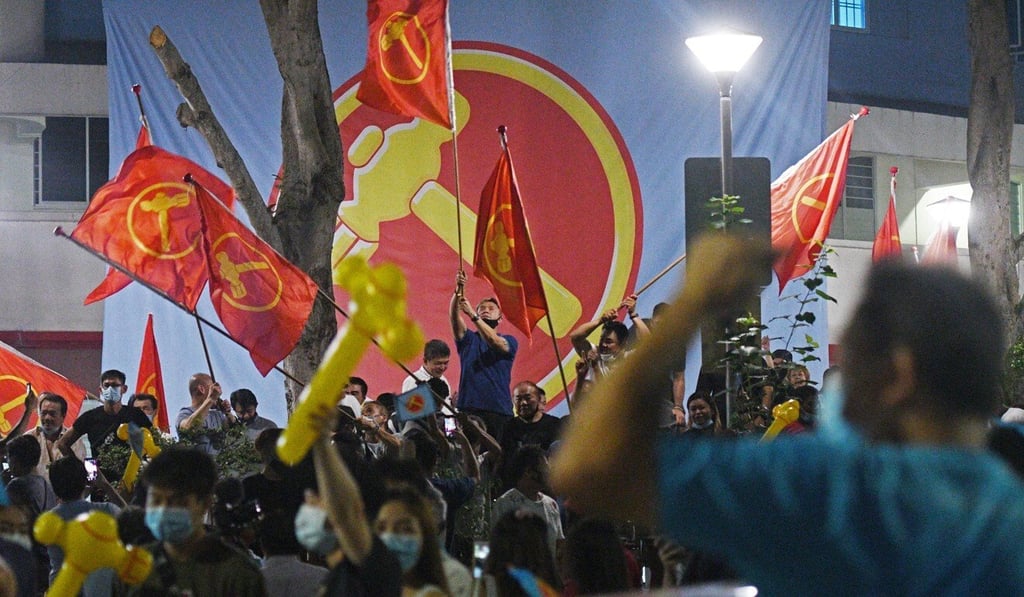Singapore election: 5 key takeaways as voters deny ruling PAP a ‘blank cheque’
- The People’s Action Party was seeking a strong mandate to contend with the economic and public health crisis caused by the coronavirus pandemic
- Instead, it received one of its lowest vote shares in decades, as voters turned away in their droves – allowing the opposition to make inroads

But the wait was worth it. The opposition Workers’ Party that he voted for won in his Sengkang group representation constituency (GRC) – only the second time a multi-seat ward has not gone to the ruling People’s Action Party since independent Singapore’s first elections in 1959.
“The PAP wanted a strong mandate. But I think it’s better to vote for a stronger opposition to keep them on their toes,” said Chew over the phone. In the background, people could be clearly heard chanting “Worker’s Party”. “As you can tell, many of my neighbours are also similarly elated,” he said.
Voters like Chew sent a strong signal to the ruling People’s Action Party, one in which they clearly preferred stronger competition and more diversity in parliament.

It was a stinging rebuke to the PAP, which had described this year’s poll as a crisis election. Singapore is facing a public health emergency and its worst recession since independence and the ruling party had been relying on the fact that voters historically tended to vote for the incumbent in times of crisis.
After the dust settled, voters returned PAP to power with 83 of 93 seats. But its vote share tumbled to 61.2 per cent, eight percentage points lower than the 69.9 per cent it received in 2015.